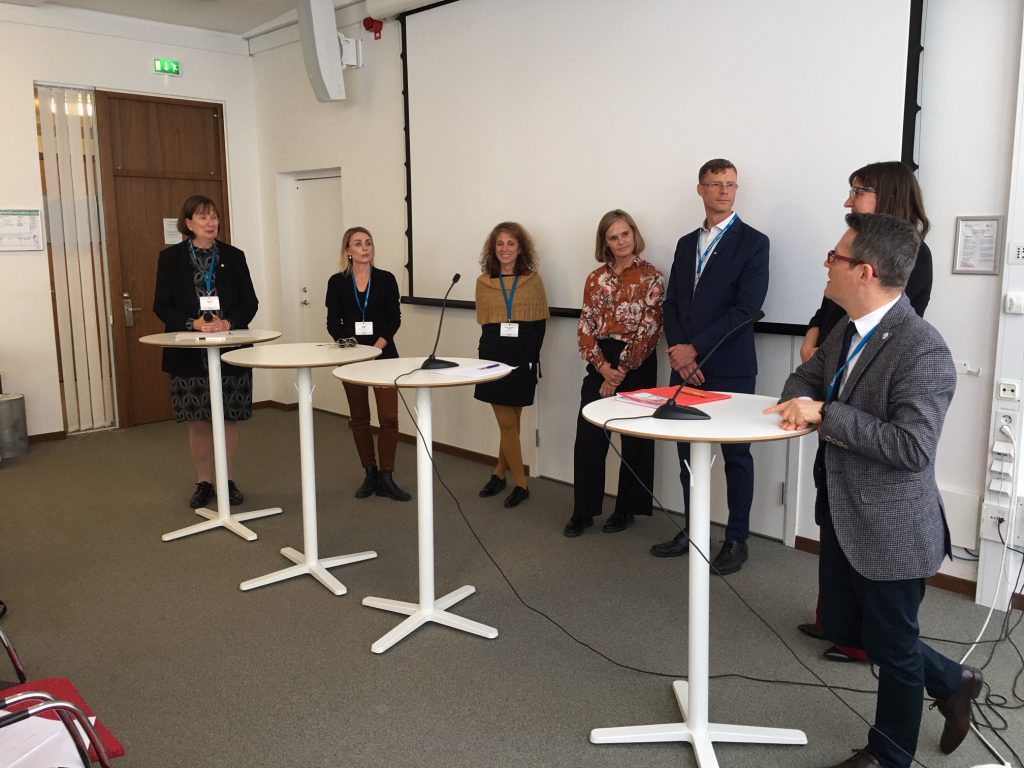This week it was time for the European Parliament to quiz the nominee for the new position of commissioner for innovation and youth, Mariya Gabriel. Her brief is interesting and contains more than the title suggests. For the first time, research, innovation and education (alongside culture, youth and sport) are being combined in a single portfolio. This is a significant change that likely brings both opportunities and risks. On the one hand, it creates potential synergies within the ‘knowledge triangle’, as Gabriel herself underlined during the questioning. However, there is also a risk that the breadth of the portfolio will reduce the focus on research in the future, which would be unfortunate.
While Gabriel’s policies will no doubt be influenced by the Commission’s broader policy agenda, she states that she will defend the research budget, including ERC grants, in upcoming negotiations. This is promising. Top quality basic research with a long-term perspective has often proved to be the way that ultimately leads to solutions to societal challenges.
Gabriel is said to have performed well during questioning. After eight years as an MEP and two years as a member of the European Commission, the proposed Bulgarian commissioner is thoroughly familiar with the language and rituals used in Brussels. We can probably expect her to be approved by the European Parliament on 23 October. The consequences of her mandate for innovation and knowledge development in Europe will then remain to be seen.
SUHF seminar on European Universities
Today the Expert Group on Internationalisation at the Association of Swedish Higher Education Institutions (SUHF) organised a seminar for information and discussion on Sweden’s participation in the European Universities initiative. On the whole, Sweden has done well: six Swedish higher education institutions are involved in the total of seventeen alliances that were successful in the first pilot round. Our application with U4 was not among them, but we will be trying again in the next pilot round in a broader constellation. Tine Delva, a policy adviser in Brussels who works on this issue, presented a preliminary evaluation of the pilot and told us about the next application round. Ludovic Thilly from the University of Poitiers, the current chair of the Coimbra network, shared his experience with participants and gave us an overview of how Coimbra supports experience exchanges between its members. The messages that emerged clearly were that being involved in European Universities takes time, involves many people and is both challenging and inspiring. The afternoon ended with a panel discussion in which representatives of higher education institutions, the Swedish Council for Higher Education and the Ministry of Education and Research participated along with the invited speakers. Several EU countries provide support to their universities in the event of successful applications, and one of the speakers warned that the lack of national support could make Swedish institutions less attractive partners in future applications.

As chair of the Expert Group, I had the task of summing up the seminar and the afternoon. The European Universities initiative has led to a remarkable revitalisation of the European Higher Education Area (EHEA) and the Bologna Process and has induced a large proportion of Europe’s universities to get involved in ambitious and far-reaching cooperation. I am convinced obstacles will need to be eliminated to give universities increased authority to act and it will be noticeable when more are involved in European Universities and deeper international cooperation. The Ministry of Education and Research needs to be receptive and willing to address these issues in future. The Expert Group, together with the Swedish Council for Higher Education, will continue to create arenas for experience exchange between higher education institutions. Thank you, everyone who contributed to an interesting and stimulating afternoon on European Universities!
